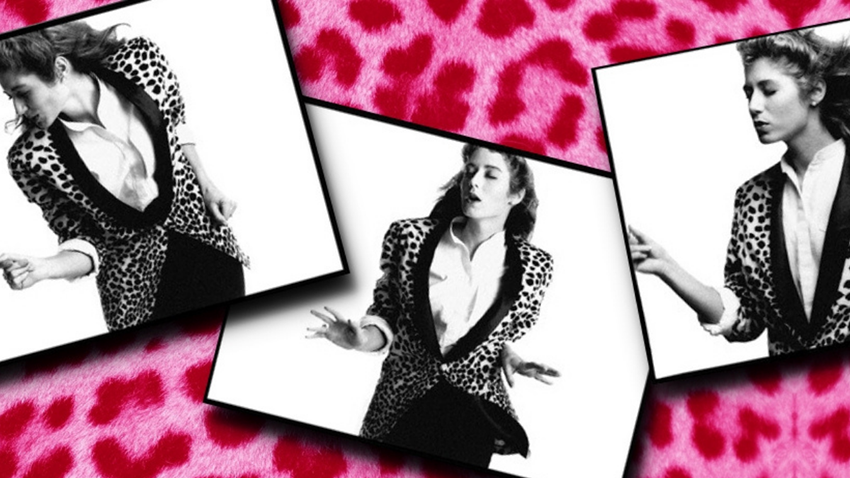Review: Unguarded, Amy Grant
This year marks the fortieth anniversary of the release of Amy Grant’s Unguarded album, the work which pushed her into the mainstream.
Straight Ahead had been released just the year before, but the two albums sound different, with Straight Ahead tending towards the style of the early eighties, with theatrical flourishes and, although there are funky moments, pretty piano figures like that of ‘Thy Word’. Unguarded, in contrast, is more straight-ahead pop/rock, with nothing as worshipful as ‘Thy Word’.
The album cover notably features Grant in a leopard print dinner jacket (with the sleeves rolled up – such an 80s look) that is as iconic as the traffic light on Straight Ahead. But where the traffic light might have suggested fidelity to the rules, the jacket suggests she is ready to groove.
Much of the material is synthesizer-driven but with more guitars and up-tempo beats – ‘I Love You’, ‘Stepping in Your Shoes’ and ‘Fight’ noticeably so. These types of songs would not have been out of place on the Flashdance soundtrack. 80s everywhere men Dann Huff and Michael Landau contribute chorus-pedal-inflected guitars and Mike Brigadello adds funk bass that occasionally snaps out of the mix. Opener ‘Love of Another Kind’ features bright keyboards like the Oberheim synthesizer of Van Halen’s ‘Jump’, which had come out the year before. (Another Van Halen influence might be the sound of the car revving at the start of ‘I Love You’.) (Of course, it wasn’t just Van Halen: think of Toto’s ‘Africa’ and its brassy keys – they were common in the mid-eighties.)
‘Everywhere I Go’ is an exception, a reggae-lite number with a shiny, cycling synth riff and Latin percussion. ‘I’ll Be Waiting’ recalls her earlier albums, but it builds into a power ballad, much like ‘The Next Time I Fall’, the duet with Peter Cetera she would record the following year, something that would have seemed unlikely without the step-up Unguarded provided.
Lyrically, a common motif is God turning one’s life around. ‘Love of Another Kind’ is as evangelistic as can be, energetically so. There are also aspects of spiritual warfare – Grant had been reading the likes of Frank Peretti, who satisfied conservative Christians who nevertheless had a taste for the scary in fiction – in songs such as ‘Fight’ and ‘Wise Up’. Grant growls and shouts through the latter, in contrast to the likes of her earlier ‘My Father’s Eyes’. A portion of the video clip for ‘Wise Up’ (with leopard print jacket!) was used as an ad for Christianity during 80s daytime television, in the hope of convincing viewers Christianity could be hip. Although the lyrics clearly refer to God-given wisdom, there is a bit more subtlety than ‘Angels’, off the previous album, which had been used for similar purposes but came across a bit cringe-y.
A song like ‘I Love You’ is, for Grant and Christian pop at the time, newly focussed on romantic love (controversially so in conservative quarters). But, ironically, the message of the lyrics is effectively: ‘we can work this out despite all our problems’. We can hear in the lyrics the working through of a marriage that turned out to be difficult (and would dissolve, eventually and very publicly, ten years later). Her husband was a drug addict and was uncomfortable with playing second fiddle to her fame, and the marriage had quickly lost its romantic lustre. Similarly dark themes permeate Lead Me On, the follow-up to Unguarded. The writing was on the vinyl, so-to-speak, for her marriage. Perhaps, though, an honesty about life was what made Grant endearing to her fans.
The lyrics did suggest that faith was difficult – they implied that the Devil lurked everywhere, waiting for any misstep to take advantage. Though likely aimed at teens who might have been a little embarrassed by attending church with their parents, there is little mention here or in other similar releases at the time of the community of church, or that Christianity also entails aspects of addressing social inequalities. In this, the album is representative of a particularly individualistic and perhaps blinkered view of what faith means.

Although Unguarded was meant to give her exposure in the mainstream pop music scene, and it did, it was also representative of the subculture of Christian pop promoted by sunny Christian bookstores, whose proliferation would peak in the 1990s, with their bibles, greeting cards, spirit-themed knickknackery and music that parents could pick up for their children with confidence that there would be little of rock’s rebellious nature within it, even if Amy flirted with that just a little.
Nick Mattiske blogs on books at coburgreviewofbooks.wordpress.com and is the illustrator of Thoughts That Feel So Big.












